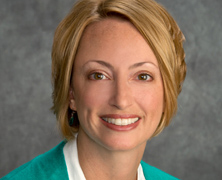Undoubtedly, the most professionally beneficial “inner work” I have done is to develop a commitment to proactive rather than reactive practices and processes. This commitment applies to everything—from small, less-important tasks, right up through the more significant problems, projects, and relationships.
Becoming habitually proactive requires the cultivation of certain disciplines. First, one must be willing to speak truth and ask hard questions. There are constructive, positive, and even humor-laden ways to do this, and there are ways to do it that peg one as a complainer. I strive for cooperative working relationships with colleagues, so that they will understand who I am and what I value. Then, when I challenge something, they know I am not being disrespectful. Using my own communicative strengths (and working to improve my communicative weaknesses) is a critical skill in this regard.
Second, but related to the first, one must become comfortable with conflict, recognizing it not as a sign that things have gone awry, but rather as an opportunity for growth and movement toward a desired end. My training in conflict resolution and mediation has taught me to handle workplace conflict in healthier ways. It’s my view that every professional in every field should take an intensive training course in conflict resolution skills development; these skills help an individual communicate her own perspectives more effectively, listen to others’ concerns, and negotiate toward the desired end.
The third and last discipline I’ve tried to cultivate relates to relationships with others. Being proactive means being direct, yet collegial and respectful, in my working relationships; going directly to the source, rather than through a third party to address my concerns and needs; and refusing to let others’ experiences with, and opinions about, a colleague influence my own opinions about that individual.
On Finding Success and Staying Competitive
At an institution where effective, innovative teaching is the main focus, I find it important to also maintain a commitment to my broader academic field through research and publishing, conference participation, networking, and other professional-development activities.
On the Importance of Role Models and Mentors
My master’s program advisor, Dr. John L. McLaughlin (now at the University of Toronto), encouraged me to pursue doctoral work despite my doubts about my own abilities. If not for his encouragement, I would not have made the decision to pursue a terminal degree in my field—and thus, would not have realized my dream of teaching and working in higher education.
On Facing Challenges
My ongoing challenge is work-family balance. It is easy to succumb to feelings of guilt when conferences or deadlines pull inordinate time away from my family. However, my mother’s insistence that every working mom struggles with these feeling has helped me to let go of “mommy guilt” and remember that I’m modeling something very important for my two young daughters by succeeding professionally and maintaining a happy, stable family.
Nicole’s Advice to Young Women Starting Careers
Don’t be afraid to ask for what you need for success—within reason, of course. If you work hard, practice integrity, and have healthy, cooperative relationships with colleagues and superiors, you’ll find that people will be more willing to provide the needed resources.







